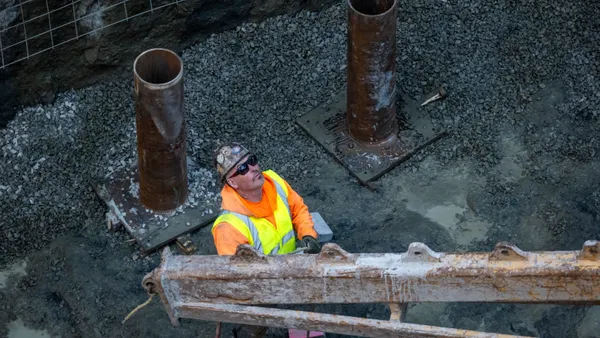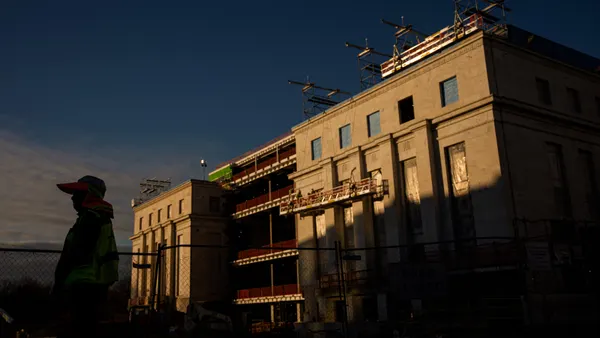Dive Brief:
-
California's existing-home sales turned up again in May while the median home price reached its highest level in nearly a decade, according to the California Association of Realtors. Sales rose 5.4% from April and 2.6% from May 2016 to 430,060 units. Prices increased 2.3% for the month and 5.8% for the year to $550,200 in May.
-
Active listings fell for the 23rd-straight month, down 12.4% year-over-year. This decline, along with the increase in sales, further tightened inventory from a 3.3-month supply in April to a 2.9-month supply in May.
-
Single-family homes spent a median 22.4 days on the market in May, down from 24.2 days in April and 27.4 days in May 2016.
Dive Insight:
California remains one of the country's hottest housing markets, with its severe inventory shortage fueling intense competition for homes. That trend is driving the state's already-high home prices to new heights as the median price for an existing home in California is now more than double that of the national average ($252,800 in May), and homes there are flying off the market faster than they are across the U.S. overall.
While all the Golden State's major markets are seeing home-price gains, some are feeling the pressure more than others. Los Angeles was labeled the nation's most unaffordable housing market, according to a report from the University of California Los Angeles School of Management. Cities like San Diego and San Francisco face similar challenges.
Homeowners in Los Angeles and San Francisco spend more of their income on monthly mortgage payments than do owners in other markets across the U.S., with those in Los Angeles and San Francisco spending 46.8% and 40.2%, respectively, of their earnings on such payments.
To make up for its inventory deficit, California needs to add 180,000 new housing units each year, though it is currently producing less than half that number. State Sen. Scott Wiener has called for the state to include market-rate development in achieving that aim, saying that focusing solely on affordable housing will create too much tension.
State lawmakers made moves in that direction by passing a series of bills earlier this month to streamline the vetting process for affordable housing projects. Individual cities, too, have undertaken efforts to grow their housing inventory. Earlier this year, Los Angeles earmarked $37 million to finance affordable housing in the city, while San Francisco officials voted in favor of a program that incentivizes developers to incorporate more affordable units in their projects.













